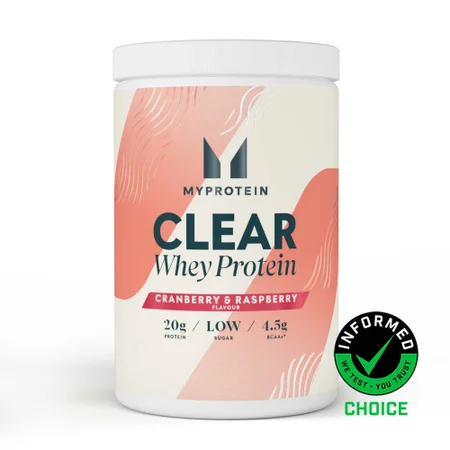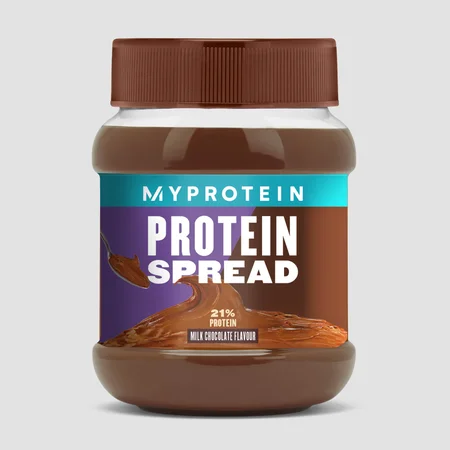
- Vegan or Vegetarian Diet
- The Carnivore Diet
- The Alkaline Diet
- The Mediterranean Diet
- If it Fits Your Macros Diet
- The Smoothie Diet
- The Blood Type Diet
- The Ketogenic Diet
- 16:8 Intermittent Fasting
- 5:2 Diet
Vegan or Vegetarian Diet
The main premise of a vegan or vegetarian diet is limiting your intake of animal-based foods, which are replaced by more servings of plant-based foods.
Focusing on plant-based foods means a wealth of vitamins and minerals, but can be tricky to meet your protein goals without proper meal planning.
Pros of the Vegan Diet
Many fruits, vegetables, and whole grains No limit on carbs, sugars, or other foods Eco-friendly
Cons of the Vegan Diet
Can be more challenging to hit high protein goals Cost of fresh produce may be a factor for some

5 Easy Vegan Meals For Beginners On A Budget | From 70p
Going plant-based has never been simpler....
The Carnivore Diet
The polar opposite of the vegan diet is the carnivore diet, which focuses on primarily animal-based foods. This diet is appealing to those who prefer eating lots of meat and other animal proteins, and those who prefer to follow a low carb or keto diet option. Although it does limit
Pros of the Carnivore Diet
Very high in protein Can be very low in carbs Can help burn body fat
Cons of the Carnivore Diet
High consumption of meats may hinder absorption of other nutrients Can be difficult to sustain long term Excludes entire food groups
While the carnivore diet can help you meet your weight loss or muscle gain goals if you adhere strictly to it, it can be difficult to keep your body in a fat burning state due to the low levels of carbs it requires. This diet might be a good fit short term but unsustainable for the long run and makes it difficult to get adequate vitamins and minerals as it limits fruit and veg.
The Alkaline Diet
Pros of the Alkaline Diet
Potential to reduce inflammation Preserving bone health Presumed less taxing on the organs1
Cons of the Alkaline Diet
Complicated lists of foods to include and avoid Excludes entire categories of foods (i.e., citrus) May not be sustainable long term
While it’s important to help your body maintain a healthy pH balance, a healthy individual typically should be able to consume a variety of nutritious foods without worrying too much about their acidity.
If you have a healthy digestive system, liver, and kidneys, they are excellent filters that can maintain our body’s ideal state without exclusively consuming alkaline foods.
The Mediterranean Diet
Pros of the Mediterranean Diet
Easy to follow Allows for all food groups May support heart health and reduce inflammation2 Can be used for weight loss
Cons of the Mediterranean Diet
Excludes many convenient (processed) foods - Fresh foods may be more costly
If It Fits Your Macros Diet
Pros of the IIFYM Diet
Can be very regimented (may also be a con if you don’t like to be regimented) Can help build muscle Can help lose weight No foods are completely excluded
Cons of the IIFYM Diet
Requires lots of math and tracking May be time consuming May need adjustments over time
The Smoothie Diet
The smoothie diet is designed to help you lose weight easily and get balanced nutrition by replacing two meals per day with smoothies for 21 days, then gradually re-introducing other healthy foods.
It can be easy to follow due to its short duration and can help achieve weight loss goals if you follow it properly.
Pros of the Smoothie Diet
Easy to follow (if you have the meal plan) High in nutrients Short term
Cons of the Smoothie Diet
Replaces two regular meals each day Can feel restrictive Effects can be short term or unsustainable
While the Smoothie Diet is an effective way to manage your calorie intake and therefore lose weight, you don’t actually learn healthy meal planning and balanced eating by only consuming smoothies.

What Is The Smoothie Diet?
Everything you need to know about this fruity diet....
The Blood Type Diet
The Blood Type Diet is based on the idea that our blood types designate the best diet for our bodies. It provides four versions (based on your blood type) that prescribe certain foods.
While some people like this structure, it’s very detailed and less of a one-size-fits all approach.
Pros of the Blood Type Diet
Tells you exactly what food categories to eat Most healthy foods are included Feels “customized” to your body
Cons of the Blood Type Diet
Not supported by scientific evidence3 Excludes some foods based on which version you follow May not be realistic long term
The Ketogenic Diet
The Ketogenic Diet has become very popular in the last few years because it promises quick weight loss by burning body fat. It’s based on reducing your carb intake so low that your body has to shift to burning fat for energy - ketogenesis.
While this works, it can be hard to stay in a ketogenic state, and difficult to maintain the weight loss that you originally achieve.
Pros of the Ketogenic Diet
Includes many high fat, tasty foods Has lots of protein Relatively easy to follow
Cons of the Ketogenic Diet
- Excludes many healthy foods, like fruits and whole grains
- Requires strict adherence to see results
- Likely not sustainable long term
The ketogenic diet can help you meet your goals if you are determined to stick to it,4 But there are several other diets that allow you to eat carbohydrates (that have extremely important benefits) that may be a better, more sustainable fit.

How To Build Muscle On A Keto Diet
Find out if it's really as tough as people say....
The 16:8 Intermittent Fasting Diet
Pros of the 16:8 Diet
Can promote weight loss5 Can promote lean gains5 Can feel unrestrictive during eating window
Cons of the 16:8 Diet
Strict eating/fasting schedule May be difficult to fuel properly for workouts Can be as effective as calorie restriction
The 16:8 IF diet can be effective purely by not eating for most of the day - which limits overall calorie intake. However, you can still go overboard during the 8-hour eating window and not see any results. If you track your calories, this diet can work - but may also not be necessary.
The 5:2 Diet
The 5:2 Diet is another form of intermittent fasting that prescribes two very low calorie “fasting” days and 5 moderate calorie regular eating days. The premise is to only restrict your intake drastically two days a week, making it feel more sustainable.
Pros of the 5:2 Diet
Most days are less restrictive No foods are totally off limits Can be effective for weight loss or lean gains
Cons of the 5:2 Diet
Likely as effective is regular calorie restriction or macro counting Very low-calorie intake on fasting days can impact performance in the gym May be difficult to follow long term
While the 5:2 diet is effective for some, it is likely due to the negative calorie balance you achieve through two days of fasting.6 In the long run, a healthy diet pattern can be just as effective without two days of extreme restriction.
So What is the Best Diet?
The best diet is a highly individual decision, but there are a few fundamentals for consideration. If your goals are fat loss or muscle goal, IIFYM can give you the control over your eating patterns to meet your goals. Other diets may only be short term trends that may or may not give you sustainable results.
Research consistently shows that counting calories (or macros) is effective, whether you are limiting carbs or fat to meet those goals.7
Take Home Message
The best diet is one that you can stick with long term and fit into your lifestyle. Be wary of any diets that promise instant results or restrict many foods for a long time. Health can be achieved through many diet patterns.7
READ THESE NEXT:

Claire is a Registered Dietitian through the Academy of Nutrition and Dietetics and a board-certified Health and Wellness Coach through the International Consortium for Health and Wellness Coaching. She has a Bachelor of Science in Biology and a Master’s degree in Clinical Dietetics and Nutrition from the University of Pittsburgh.
Talking and writing about food and fitness is at the heart of Claire’s ethos as she loves to use her experience to help others meet their health and wellness goals.
Claire is also a certified indoor cycling instructor and loves the mental and physical boost she gets from regular runs and yoga classes. When she’s not keeping fit herself, she’s cheering on her hometown’s sports teams in Pittsburgh, or cooking for her family in the kitchen.
Find out more about Claire’s experience here.
- 1.Passey, C. (2017). Reducing the dietary acid load: how a more alkaline diet benefits patients with chronic kidney disease. Journal of Renal Nutrition, 27(3), 151-160.
- Martínez-González, M. A., Salas-Salvadó, J.,Estruch, R., Corella, D., Fitó, M., Ros, E., & Predimed Investigators. (2015). Benefits of the Mediterranean diet: insights from the PREDIMED study. Progress in cardiovascular diseases, 58(1), 50-60.
- Wang, J., García-Bailo, B., Nielsen, D. E., & El-Sohemy, A. (2014). ABO genotype,‘blood-type’dietand cardiometabolic risk factors.PloS one, 9(1), e84749.
- Vining, E. P., Freeman, J. M.,Ballaban-Gil, K., Camfield, C. S., Camfield, P. R., Holmes, G. L., … & Ketogenic Diet Multi-Center Study Group. (1998). Amulticenter study of the efficacy of the ketogenic diet. Archives of neurology, 55(11), 1433-1437.
- Moro, T., Tinsley, G., Bianco, A.,Marcolin, G., Pacelli, Q. F., Battaglia, G., … & Paoli, A. (2016). Effects of eight weeks of time-restricted feeding (16/8) on basal metabolism, maximal strength, body composition, inflammation, and cardiovascular risk factors in resistance-trained males.Journal of translational medicine, 14(1), 1-10.
- Johnstone, A. (2015). Fasting for weight loss: an effective strategy or latest dietingtrend?.International Journal of Obesity, 39(5), 727-733.
- Katz, D. L., & Meller, S. (2014). Can we say what diet is best forhealth?.Annual review of public health, 35, 83-103.







